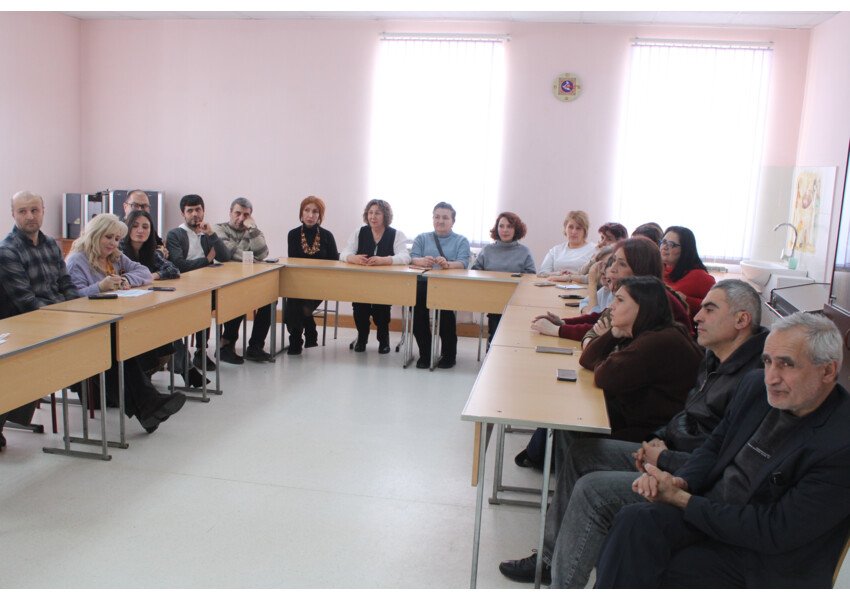
Regular internal training within the framework of the Erasmus+ "RENFORCE" international program, day 2
News
MESCS OF RA "Gyumri Craftsman State School N 4" SNPO
Founded in 2009
Registration: July 14, 2009, registration number 29.210.02439, certificate: 03 A 084223
Statute: Order N 593-A/Q of the Minister of Education and Science of the Republic of Armenia, dated July 6, 2009
Accreditation: In 2024, by the decision of the ANQA Accreditation Committee, it received institutional accreditation for a period of 4 years.
In 2024, ANQA received institutional accreditation for a period of 4 years by decision of the Accreditation Committee.
Accreditation: in 2004, by the decision of the ANQA Accreditation Committee, it received institutional accreditation for a period of 4 years.
Some of the master-teachers have also participated in the processes of developing and revising professional state educational standards, and have created teaching manuals that are used in VET institutions across the country.
Ten specialties are taught at the college:
Painting and sculpture
Technical maintenance and repair of radio-electronic equipment
Computer operation
Hairdressing art and decorative makeup
Jewellery
The following have been introduced on an experimental basis:
In 2018 with the support of the German International Cooperation Agency (GIZ), the vocational school has implemented a dual education system in the specialty of "Culinary Arts: Cook." as part of the basic education.
In 2021, state educational standard for the specialty “Installation,Repair and Maintenance of renewable energy power plants”
In 2023, state educational standard for the specialty “Furniture production technology”
In 2024, state educational standard for the specialty “Leather goods production technology”
In 2024, state educational standard for the specialty “Operation and repair of vehicles”
The study is organized:
Activity:
Admission: according to the established admission procedure
Teaching method: full-time
Educational process: according to curricula, subject programs, timetable, and class schedule
Cooperation: higher, secondary, vocational educational institutions, research and production organizations, employers, international organizations
Activity objectives:
Vocational training: initial vocational (craftsman) qualification for workers in various fields in accordance with state educational standards
Formation of a value system: a person raised in the spirit of national and universal values
Meeting educational needs: vocational education of the individual, his spiritual and physical development
Implementation of educational programs: combination of initial vocational (craft) and general education programs (basic and additional)
After graduation the students are given:
A state-certified graduation document with the appropriate qualification: a diploma
Forms of material and moral encouragement are provided for students who demonstrate high academic performance and activity, and the best students are provided with assistance in finding a job
Designed and developed by Brain Fors